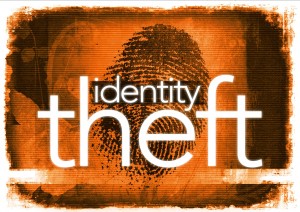 Did you know that an estimated 10 million people fall victim to identity theft each year? While we have all heard of identity theft and maybe even worry about it, when it comes to protecting ourselves we often fail. With our hectic lives, we sometimes push off the most important things until it’s too late. Reading this article could be one of the most important things you ever do to protect your identity, as it will provide you with the simple steps you can take to improve your identity security. Take a few minutes to read this piece in its entirety, view my three minute identity theft segment on the TV show Live it Up and, if you’ve found this article to be educational, please forward it along to anyone who you think might benefit.
Did you know that an estimated 10 million people fall victim to identity theft each year? While we have all heard of identity theft and maybe even worry about it, when it comes to protecting ourselves we often fail. With our hectic lives, we sometimes push off the most important things until it’s too late. Reading this article could be one of the most important things you ever do to protect your identity, as it will provide you with the simple steps you can take to improve your identity security. Take a few minutes to read this piece in its entirety, view my three minute identity theft segment on the TV show Live it Up and, if you’ve found this article to be educational, please forward it along to anyone who you think might benefit.
As a wealth advisor, I typically focus on writing about subjects that relate directly to your finances, such as IRA rollovers, but I believe that this month’s topic is a critical part of your financial well-being. Just ask anyone who has been the victim of identity theft about the experience, and you’ll likely find out just how stressful, confusing, and scary it can be. However, there are a few steps that everyone can take to reduce the risk of identity theft, and they are so easy that it’s just crazy to ignore them.
Let me start by refreshing some of the basic steps you can take to help protect your identity. Don’t carry your Social Security card with you, store all of your documents in a safe and secure place, and don’t give out your personal information unless you know who you’re dealing with and why they need your info. Also, invest in a paper shredder and shred any financial statements or other documents that have your identity information on them before throwing them out. By taking these simple measures, you can greatly improve the security of your identity.
Another step I like to take is to write “Check ID” on the signature panel of my credit cards instead of signing my name. It can be a bit of a nuisance if I’m in a hurry, but I like knowing that it may deter someone from trying to use my credit card at a brick and mortar store. Also, be sure to use credit cards rather than debit cards for online purchases. In the event that the online vendor’s security is breached, you’ll know that the credit card company will take responsibility for the losses, rather than having to wait for your bank to refund you for any fraudulent charges.
If it’s starting to sound like credit cards are a big focus of identity theft prevention, you’re right! The Justice Department has found that the use of stolen credit card information or the opening of fraudulent credit accounts is the most common form of identity theft. Keeping this in mind, another thing you should do at least once a year is to request a copy of your free credit report. This is a service offered by the three major credit reporting agencies – Experian, Equifax, and TransUnion.
Once you get your credit report, look it over and make sure that any new credit cards or debts taken out are your own. This should only take a few minutes, and will go a long way to alerting you about any breaches of your identity security. However, remember that this is a reactive measure and will not help you to proactively protect yourself against identity theft.
Because I want to be proactive, I subscribe to a credit monitoring product with Equifax. This keeps me alerted about any changes to my credit and adds an automatically reoccurring fraud alert to my credit report, which means that any time I attempt to open a new loan or credit card, the creditor has to take additional steps to verify my identity by calling the phone number I have on file. There are a lot of similar products out there, and while I wouldn’t recommend one product over another, this is the one that works for me and is a proactive way to help keep me safe.
If you don’t have a paid service and you are concerned that your identity has been or may be compromised, you have the option to place a free temporary fraud alert on your credit report. This alert lasts ninety days and, like my ongoing fraud alert with Experian, it requires potential creditors to take extra steps to verify your identity. If you like the extra protection this affords, you can renew a temporary alert every ninety days by contacting any of the three credit reporting agencies; this service is free and there are no limits to the number of times you can renew it. If you have already been the victim of identity theft, you can put an extended fraud alert on your credit information which lasts seven years.
A somewhat more drastic option that some people use to protect their credit is a credit freeze, which means your credit report is blocked and cannot be accessed for any reason unless you temporarily lift the freeze. This effectively prevents any new credit cards or loans from being opened in your name. To learn more about credit freeze options for your state, check out the state-by-state guidelines provided by the Consumers Union.
Remember that a fraud alert or credit freeze will not prevent the unauthorized use of your existing credit cards. For example, despite all the measures I’ve taken, someone still obtained my credit card number and charged two very expensive international airline tickets to my account! Luckily, I always monitor my credit cards online. I noticed the charge right away, and the credit card company was able to remove it. However, this was a good reminder that no matter what steps I’ve taken to protect myself, there’s no replacement for ongoing awareness.
For more detailed information about identity protection, take a look at the Federal Trade Commission’s detailed guide to preventing identity theft. You may also want to learn about the pros and cons of another common way to reduce risk; opting out of pre-screened credit card offers, by clicking here.
In the end, I truly believe that one of the biggest problems with identity theft is a lack of knowledge. Once again, I wrote this piece to get the message out and to educate you about the steps you can take to keep your identity safe. If you feel this article was informative and you learned something, please spread the word and pass it along to your friends and family members by email, Facebook, etc. Remember, knowledge is power!
Written by Bradford Pine
Bradford Pine Wealth Group – New York City Financial Advisors
The views and opinions expressed in an article or column are the author’s own and not necessarily those of Cantella & Co., Inc. It was prepared for informational purposes only. It is not an official confirmation of terms. It is based on information generally available to the public from sources believed to be reliable but there is no guarantee that the facts cited in the foregoing material are accurate or complete.
Comments may not be representative of the experience of other investors. Investor comments and experiences are not indicative of future performance or results. Views and opinions expressed in the comments section are the author’s own and not those of Cantella & Co., Inc. No one posting a comment has been compensated for their opinions.



Brad,
Great article…was referred to you by Anthony Nappi….would like to discuss our unique solution when you have a moment…
Best Regards,
SH